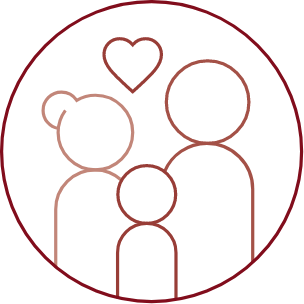Last Mile Health
Stronger community health workforces bring life-saving care to remote areas
Country
LiberiaWebsite
lastmilehealth.orgThe Challenge
In Liberia, the rates of maternal and child mortality are among the highest in the world. Underlying this problem are two key factors. First, primary health care is geographically inaccessible to many Liberians: More than 1.2 million of them live at least a one-hour walk away from the nearest health facility. Second, the country faces a serious deficit of doctors and nurses.
The Approach
Last Mile Health trains and deploys community health workers who operate in hard-to-reach rural areas. These workers can diagnose and treat preventable diseases (such as diarrhea, malaria, and pneumonia), as well as micronutrient deficiencies. To improve community health programs, Last Mile Health also provides technical advising and engages in policy and research work.
Why We Invest
Last Mile Health excels at developing close partnerships with government agencies. In Liberia, the site of its flagship program, Last Mile Health collaborated with the Ministry of Health to reform the country’s National Community Health Services Policy. Through this reform effort, the ministry transformed a fragmented and ineffective system into a unified network of professionally trained community health workers. This network—part of the country’s National Community Health Assistant Program—is operational in fourteen of Liberia’s fifteen counties. To date, the program has deployed more than 3,800 community health workers.
“A health worker within reach of everyone, everywhere.” That vision guides the work of Last Mile Health. The deployment of community health workers is not unique; other organizations follow variations of that model. What distinguishes Last Mile Health is its focus on building a community health workforce that can serve the hardest-to-reach parts of a given country. In the Liberian county of Rivercess, for example, community health workers often travel many hours by foot and by boat to deliver primary care services to patients. Despite the challenge of reaching such areas, the National Community Health Assistant Program—with support from Last Mile Health—has been able to achieve 70% coverage of the rural population in Liberia. Even more impressive is the quality of the health care that this program delivers: According to a rigorous study, the deployment of community health workers in Rivercess led to a year-over-year increase from 28% to 69% in the portion of children who had received treatment for diarrhea, malaria, and pneumonia.
As Last Mile Health expands into new countries, it retains a focus on working with governments to build and maintain high-quality community health systems. By empowering public officials to take ownership of those systems, Last Mile Health is charting a path toward sustainable, large-scale impact—and toward improved health care for those who need it most.
A community health worker conducts a rapid diagnostic test for malaria on a young patient in Grand Bassa County, Liberia.
Photo: Last Mile Health
How We Partner
King Philanthropies is funding direct implementation of the community health worker program in target counties across Liberia. Support from King Philanthropies also funds technical advising work that Last Mile Health offers to the Liberian government. In particular, because malnutrition and stunting are highly prevalent in rural Liberia, King Philanthropies is working with Last Mile Health to strengthen nutrition programming within the suite of services that community health workers provide.
In addition, King Philanthropies is providing support for the Community Health Academy, a digital platform created by Last Mile Health to train community health workers and health system leaders.
Impact Profile
A Network of Care—and a Healthy, Happy Baby
In February 2019, a baby named Nelson was safely delivered by Baryou Cadard, a clinically trained midwife at Boegeezay Health Center in Liberia. Before Nelson’s birth, Baryou worked with Mama Boe, a community health worker, to identify and follow all of the pregnant women in Mama Boe’s catchment area and to encourage facility-based deliveries. The catchment area includes Zeegar’s Town, the home village of Nelson’s mother, a woman named Naomi.
Thanks to the efforts of community health workers like Mama Boe, women in Liberia can now receive pre- and postnatal care services directly in their homes. Mama Boe works for the National Community Health Assistant (CHA) Program, an initiative run by the Liberian Ministry of Health with support from Last Mile Health.
Mama Boe, a community health worker, serves a catchment area that includes Zeegar’s Town, Liberia. Photo: Last Mile Health


